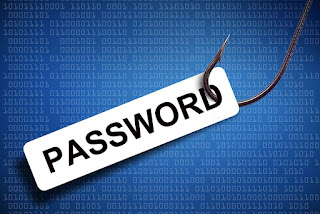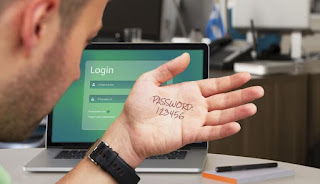How to Minimize Your Digital Footprint
Your digital footprint is all of the information about you found online.
This footprint includes your name, address, social media posts, content
you have shared, IP address, and even your browsing history and
personal details like your mother’s maiden name. This information can be
posted by you or about you. Although your digital footprint can be
useful when job hunting, proving you are a real person with real
experience there are definite risks to such an easily found wealth of
information about you online.
If you are trying to go off the grid, regain a bit of online anonymity, or help prevent identity theft, it’s a good idea to minimize your digital footprint. Knowing how to remove personal information from Google is only the first step.
Delete or Deactivate Accounts
Deleting your Facebook and Twitter accounts is an obvious first step, but be sure to delete accounts on shopping sites like Amazon, Target, or Old Navy as well. Don’t forget old social media sites like Tumblr and Myspace.
Remove Information From Data Broker Sites
To remove personal information from Google, you need to know the source of that information. These are often data broker sites like Whitepages and Spokeo that collect and sell your personal information. This private data includes everything an advertiser or identity thief might want, from your name and address to your online activities. You can deal with them yourself one by one, but you’ll have to brush up on your knowledge of privacy policies and laws. Since their business relies on that data, they won’t make it easy to remove. Alternatively, you could pay a service to do it for you, which will save you time and ensure your private details stay that way.
Increase Privacy on Accounts
If you can’t live without social media, at least lock down the privacy of your accounts. Change your privacy settings so only your friends can see your content and be careful what you post. It’s not a bad idea to remove your phone number and obscure your location and age.
Use a VPN
The most secure option for browsing the internet is a Virtual Private Network or VPN. These paid services will bounce your browsing requests through a private network of different locations, obfuscating your location and IP address. Cookies won’t be collected, either. Think of it as a tunnel to the website you are visiting, shielding your private information. This is opposed to riding down the information superhighway with your personal data in the open. The Tor browser serves similar functions, offering you internet browsing anonymity.
Use a Private Browser
Using a private browser like Epic or Brave won’t track your internet habits, increasing your privacy and security. They will not track your search history and cookies will not be collected.
Delete Old Email Accounts
Your last step should be deleting old email accounts. Do this after taking all the other steps as some require an email. It’s not wise to keep any old email accounts unless you need to keep one for work purposes. In that case, remove as much identifying information as possible and unsubscribe from mailing lists. You can also get a disposable email address to use instead of your main account. A fake account you can utilize when an email is required can keep your real inbox clean and safe from advertiser profiling.
About DeleteMe
DeleteMe leads the industry in data privacy and online security. Boston-based DeleteMe’s expert privacy team uses proprietary technology and innovation to remove your personal information from data broker sites that sell it. So far, they have achieved more than 20 million successful customer opt-outs. DeleteMe has earned a reputation for its efficient and effective internet security strategies, providing cutting-edge tools for securing data privacy and consumer security. They will help with information removal from Whitepages and over 30 other data broker sites, as well as search engines like Google.
Keep your personal information private with DeleteMe at Joindeleteme.com
If you are trying to go off the grid, regain a bit of online anonymity, or help prevent identity theft, it’s a good idea to minimize your digital footprint. Knowing how to remove personal information from Google is only the first step.
Delete or Deactivate Accounts
Deleting your Facebook and Twitter accounts is an obvious first step, but be sure to delete accounts on shopping sites like Amazon, Target, or Old Navy as well. Don’t forget old social media sites like Tumblr and Myspace.
Remove Information From Data Broker Sites
To remove personal information from Google, you need to know the source of that information. These are often data broker sites like Whitepages and Spokeo that collect and sell your personal information. This private data includes everything an advertiser or identity thief might want, from your name and address to your online activities. You can deal with them yourself one by one, but you’ll have to brush up on your knowledge of privacy policies and laws. Since their business relies on that data, they won’t make it easy to remove. Alternatively, you could pay a service to do it for you, which will save you time and ensure your private details stay that way.
Increase Privacy on Accounts
If you can’t live without social media, at least lock down the privacy of your accounts. Change your privacy settings so only your friends can see your content and be careful what you post. It’s not a bad idea to remove your phone number and obscure your location and age.
Use a VPN
The most secure option for browsing the internet is a Virtual Private Network or VPN. These paid services will bounce your browsing requests through a private network of different locations, obfuscating your location and IP address. Cookies won’t be collected, either. Think of it as a tunnel to the website you are visiting, shielding your private information. This is opposed to riding down the information superhighway with your personal data in the open. The Tor browser serves similar functions, offering you internet browsing anonymity.
Use a Private Browser
Using a private browser like Epic or Brave won’t track your internet habits, increasing your privacy and security. They will not track your search history and cookies will not be collected.
Delete Old Email Accounts
Your last step should be deleting old email accounts. Do this after taking all the other steps as some require an email. It’s not wise to keep any old email accounts unless you need to keep one for work purposes. In that case, remove as much identifying information as possible and unsubscribe from mailing lists. You can also get a disposable email address to use instead of your main account. A fake account you can utilize when an email is required can keep your real inbox clean and safe from advertiser profiling.
About DeleteMe
DeleteMe leads the industry in data privacy and online security. Boston-based DeleteMe’s expert privacy team uses proprietary technology and innovation to remove your personal information from data broker sites that sell it. So far, they have achieved more than 20 million successful customer opt-outs. DeleteMe has earned a reputation for its efficient and effective internet security strategies, providing cutting-edge tools for securing data privacy and consumer security. They will help with information removal from Whitepages and over 30 other data broker sites, as well as search engines like Google.
Keep your personal information private with DeleteMe at Joindeleteme.com




Comments
Post a Comment